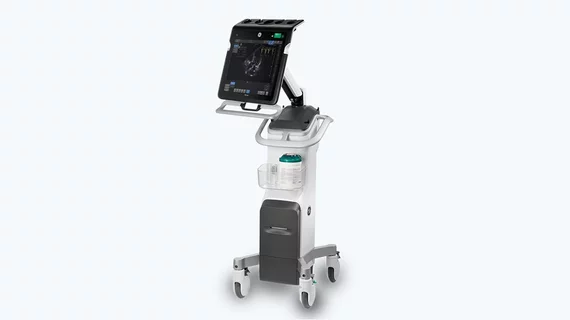GE HealthCare upgrades ultrasound systems with AI guidance
GE HealthCare has upgraded its Venue Ultrasound Systems with a new feature, powered by artificial intelligence. These ultrasound systems are used in care settings, including emergency rooms, all over the United States and GE hopes this new feature will expand what they can do.
The Caption Guidance feature will aid clinicians with real-time support as they attempt to capture the best possible cardiac images from patients, according to a statement from GE HealthCare. This is especially useful in the diagnosis of heart failure, where ultrasounds are still used as a primary tool to diagnose the condition.
GE HealthCare says the AI guidance technology is designed to support clinicians at all skill levels, making conducting scans much easier even for inexperienced operators. It provides step-by-step instructions on how to capture cardiac ultrasound images, potentially improving the early diagnosis of heart disease and associated patient outcomes.
The new technology is made possible by GE HealthCare’s acquisition of AI-ultrasound company Caption Health this past February.
“We recognize the potential of Caption Health AI in revolutionizing ultrasound access and have worked quickly to deliver on integrating this promising technology to improve patient care,” Karley Yoder, chief digital officer of ultrasound at GE HealthCare, said in a statement. “We remain committed to making an impact with this technology and plan to expand its use to maternal, fetal and pulmonary diseases.”
The company also plans to incorporate AI guidance into other devices, including its handheld ultrasound systems. In August, GE HealthCare announced a new wireless, handheld ultrasound system that’s also designed for cardiac patients.
Venue Ultrasound Systems with the new Caption Guidance AI will be showcased at the American College of Emergency Physicians (ACEP) assembly in Philadelphia on Oct 9-12, as well as at the American Society of Anesthesiologists (ASA) annual meeting taking place Oct. 13-17 in San Francisco.

